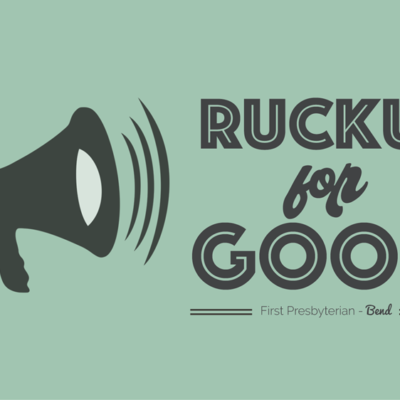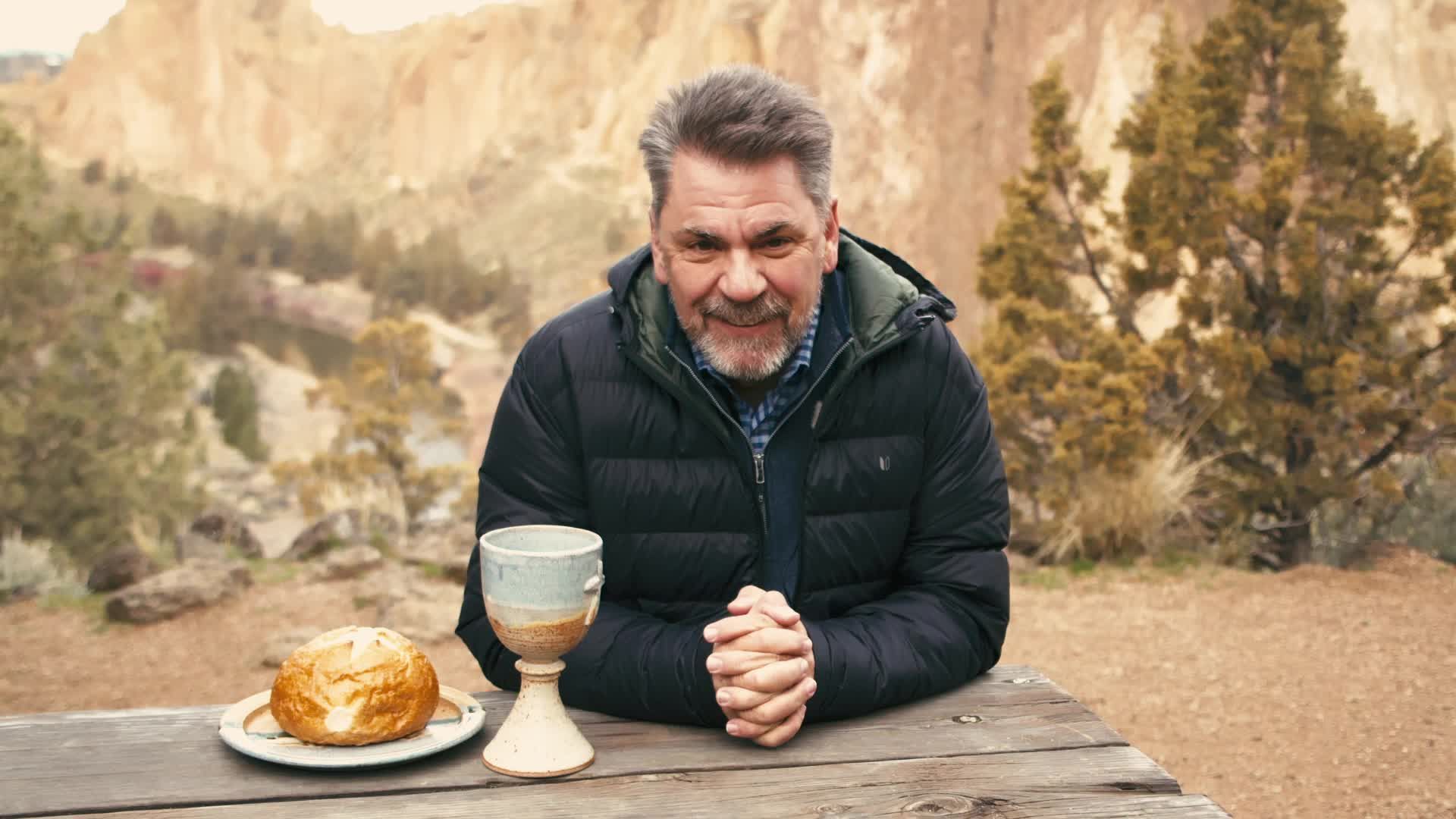Apr 23rd, Loving God’s Holy Earth, with Rev. Dr. Steven Koski
Posted: Sun, Apr 23, 2023
TRANSCRIPT: The psalmist said the earth is the Lord’s, and all that is in it. The Earth doesn’t belong to us. We belong to Earth. We are guests, temporary guests that that in saying the earth is the Lord’s. The Psalmist reminds us of a mistake we commonly make when thinking about God’s creation. I [...]
A Part of the Series:
Other Articles in:
TRANSCRIPT:
The psalmist said the earth is the Lord’s, and all that is in it. The Earth doesn’t belong to us. We belong to Earth. We are guests, temporary guests that that in saying the earth is the Lord’s. The Psalmist reminds us of a mistake we commonly make when thinking about God’s creation. I mean, we view God’s creation from a, from a very human centered lens as as if God is concerned only with us. And God simply designed the rest of creation, for our personal use and pleasure. From this perspective, we treat the earth as as a commodity to be used and consumed, rather than a sacred community we belong to and we share with all living things. Wendell Berry put it this way. We’ve lived our lives by the assumption that what was good for us would, of course, be good for the earth. We have been wrong with disastrous consequences. We must change our lives and live by the contrary assumption that what is good for the earth will ultimately be good for us. And that requires we change our relationship with the earth and rediscover the sacredness of the earth. The lens through which we see the Earth determines our behavior toward the earth. Jewish philosopher Martin Buber said there are two ways there are always two ways of being in relationship I get where we treat the the other as an object to be used for our benefit. This is when we see and treat others in terms of how they best serve our needs, and make us happy. Now the other way of being in relationship is I thou, where we treat the other as sacred, holy man, what a difference it makes in relationships, when we treat others with respect, and reverence. The most important question to ask for for healthy relationships is this. Do people feel important, valued honored? In my presence? Now imagine if we viewed our relationship with the earth through this same lens? Now if the Earth is, isn’t it, an object to be used for our pleasure and greed? We treat the earth as a consumerist, whose main concern is our own convenience and happiness, without any concern for the consequences. You know, a good example of this is that we in the United States make up about about 5% of the world’s population. But we consume on average 35% of the Earth Resources. The Bible actually has a name for this greed and sin. What if we viewed the earth through a different lens? Seeing God’s holy earth as a sacred cow to be humbly revered? I mean, what if we asked ourselves? Does the earth feel valued and honored? By my presence? Are my footsteps on this earth, heavy, or light? The Bible says in Genesis one that, that God looked over all of creation and proclaimed that it was good. So very good. Now the Hebrew we translate as, as very good, as told me old and a better translation of told bhiodh would be to say that God looked at looked at all of creation. And said, wow, God took in the beauty and, and the sacredness of creation saw saw the goodness of it all. And God was speechless. And after declaring all of creation, so very good. God gave us the Holy TAs to cherish for tact and caring for creation to make sure God’s holy earth stays. So very, very good. Now this might sound a little sacrilegious. But I sometimes wonder what difference it might have made if, if Christians viewed Earth Day, as important as Christmas and Easter. The first act of divine revelation is creation itself in creation, is God’s first Bible. And the Bible makes clear that our very first calling as people of faith is to be good stewards and to care for God’s holy earth. Not caring for the Earth. This is not some radical left green thing reserved for tree huggers. Making sure God’s holy earth stays so very good is actually foundational to our faith. And the Holy task given to every single one of us now you don’t need me to to recite statistics of the rising temperatures melting ice caps, extreme weather disastrous fires catastrophic for storms, ravaged rainforests, contaminated water, drought stricken land, and a growing number of animals threatened with extinction. You don’t need to hear all of that. To realize that we’ve treated the earth as an IT as an object that that exists to serve our purposes. Our convenience, our greed. We haven’t treated the earth as a sacred cow to be revered. Remembering it’s our holy tasks to serve the Earth. Making sure it stays Tov me old. So very good. The province we celebrated at Easter is that suffering, destruction, death for ourselves, for the earth, do not and will not ever have the last word God does. And God has the power to make all things new. Wendell Berry says it’s now our job. After Easter, it’s now our job to practice resurrection, bringing life where there is death, bringing hope, where there is despair. The environmental and climate crisis we are in and experts are in agreement we are in a crisis. It’s for most a spiritual crisis. Scientist Gus speed said I used to think the top environmental problems were biodiversity loss, ecosystem collapse and, and climate change. And I really believe that with 30 years of good science, we could solve all these problems. But I was wrong. The top environmental problems are selfishness, greed, apathy, and to deal with these problems. We need a spiritual and cultural transformation. And we scientists don’t know how to do that. We need a spiritual transformation. We need to recover I thou in our relationship to the earth. We need to dissenter ourselves. Recover a sense of humility and reverence. We will not fight to save what we do not save or and take for granted. We will not fight to save what we arrogantly assume exists to serve us. We will not restore and renew what we do not Revere. We will not make the necessary sacrifices and fight to save what we don’t love deeply not any kind of love. But an i thou love.
Do you remember a couple years ago, being in a worldwide lockdown from the global pandemic? I mean, how can we forget Have grounded flights, empty buses and trains, cars sitting in driveways, far less consumption. There was a dramatic reduction in greenhouse gas emissions, as well as a dramatic reduction in air and water pollution, the Himalayan Mountains, those mountains that shout forth the majesty of God, they could actually be seen from 100 miles away for the first time in 30 years, because of the stunning drop in pollution. The canals in Venice were crystal clear. For the first time in decades, a rare white orca whale was spotted in Puget Sound near Seattle, marine life was flourishing because there were no cruise ships, and a reduction in cargo ships. You know, as as if God’s holy earth was given a chance to take a deep breath. There was this incredible act of solidarity, sacrificing together for the common good to slow down the spread of COVID 19 sore, so our hospital systems wouldn’t be so overwhelmed. And an unintended consequence is that it actually gave us a glimpse of what’s possible. And what’s possible when we collectively decide to change our behavior. So that our ecosystem isn’t overwhelmed. It gave us a glimpse of what’s possible. When we change our relationship with the earth, from Iet, to I thou, my concern is we rushed to return to normal. Forgetting normal, was the destruction and depletion of the Earth. Some of the most helpful words in the Bible are actually the very first words. In Genesis one one, we were taught, it says, In the beginning, God created the Hebrew the original language actually says, In the beginning, God began to create. And God continues to create. God has not finished with us or the world yet, God continues to create and restore, renew, and heal all of creation and we are called as partners. In that holy work. Have you noticed how vital it is for our, for our mental, emotional and spiritual well being, to get outside, and to actually spend time in nature? I mean, people say that they feel closer to God in nature. And nature really is our best teacher, therapist, healer, preacher. Isn’t it ironic that we turned to God’s holy earth to heal us? When God’s holy earth is in crisis, and calls out to us for healing. I encourage you to take time out in nature. Whether you’re on a dirt trail, at the mountains, along or in a river, or maybe even in your back in your backyard. Let the beauty of the earth heal you. So that you might remember, your first and holiest calling from God is to revere love. Heal the Earth. We are called to live as an expression of God’s love for all of creation. So that God might once again be moved to exclaim with joy. Tov Tov Miele. Remember the best time to plant a tree was 25 years ago. The second best time is always today. The best time to change our relationship to the earth honestly from eye to eye thou was 25 years ago. The second best time is today. We do not inherit the earth from our ancestors. We are borrowing God’s holy earth from art children and their children. What changes are you willing to make? What actions are you willing to take to partner with God in healing God’s holy earth today for the sake of your grandchildren and the children of tomorrow.
may it be so.

